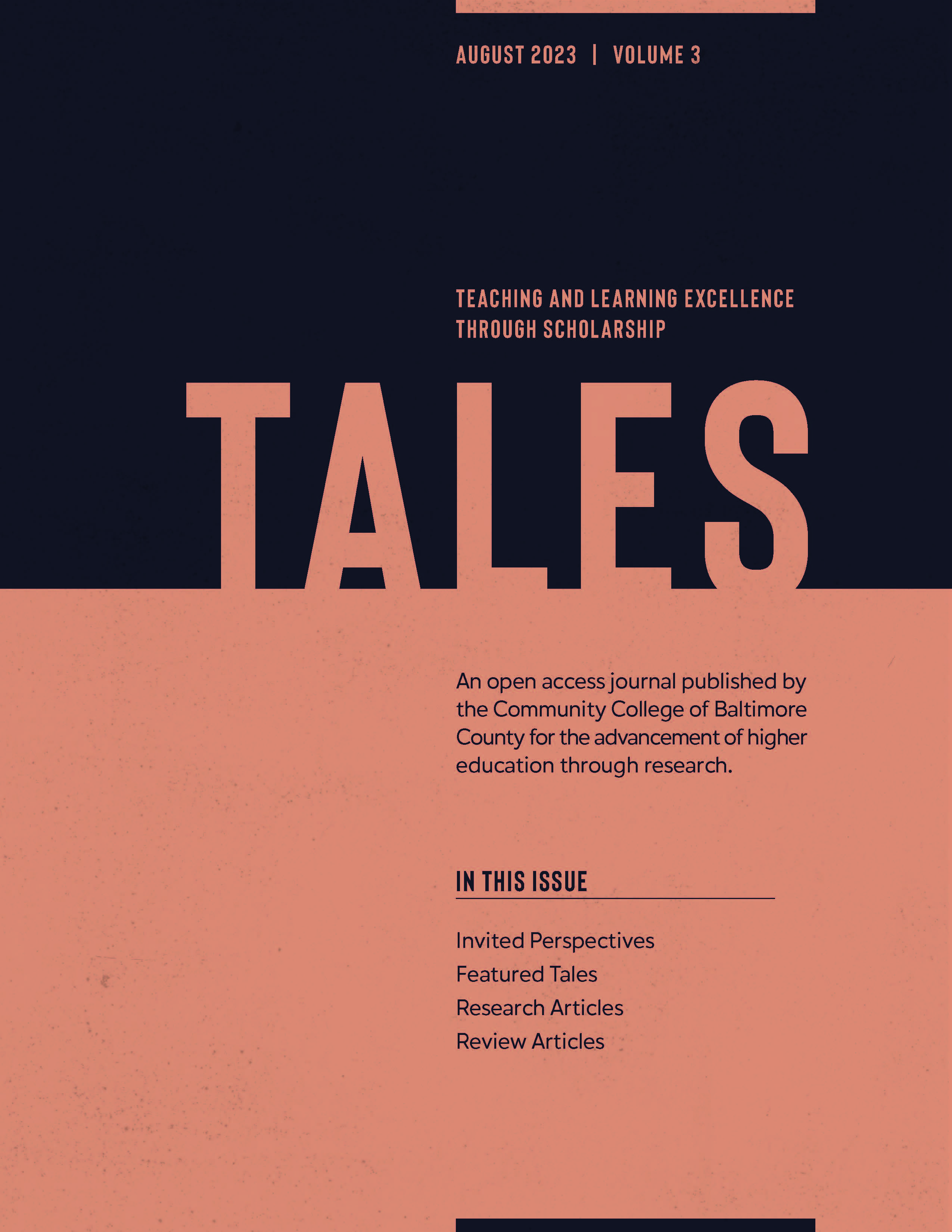Open Educational Resources and Educational Outcomes at a Community College
DOI:
https://doi.org/10.52938/tales.v3i1.2891Abstract
Open educational resources (OERs) are an alternative textbook to publisher materials used by colleges and universities. While OERs likely reduce the cost of college for students, research is mixed on the impact of these textbooks on student success in college. The present study utilizes preference score matching (PSM) methodology to compare OER and publisher textbook use to student pass and withdrawal rates from 9 high-enrollment courses taught at the Community College of Baltimore County from fall 2016 through spring 2021. We examined all enrollments in a subclass-match PSM model, and found a significant improvement of 0.153 on the final course grade received by the student, and a significant increase of about 4% for students that received an ABC in courses using the OER, along with a significant decrease of 2.6% in the rate that students withdrew from OER courses. We also examined Pell students in a subclass-match PSM model, and found a significant improvement of 0.331 on the final course grade received by the Pell student, and a significant increase of about 9% for students that received an ABC in courses using the OER, along with a significant decrease of 4.8% in the rate that Pell students withdrew from OER courses.


